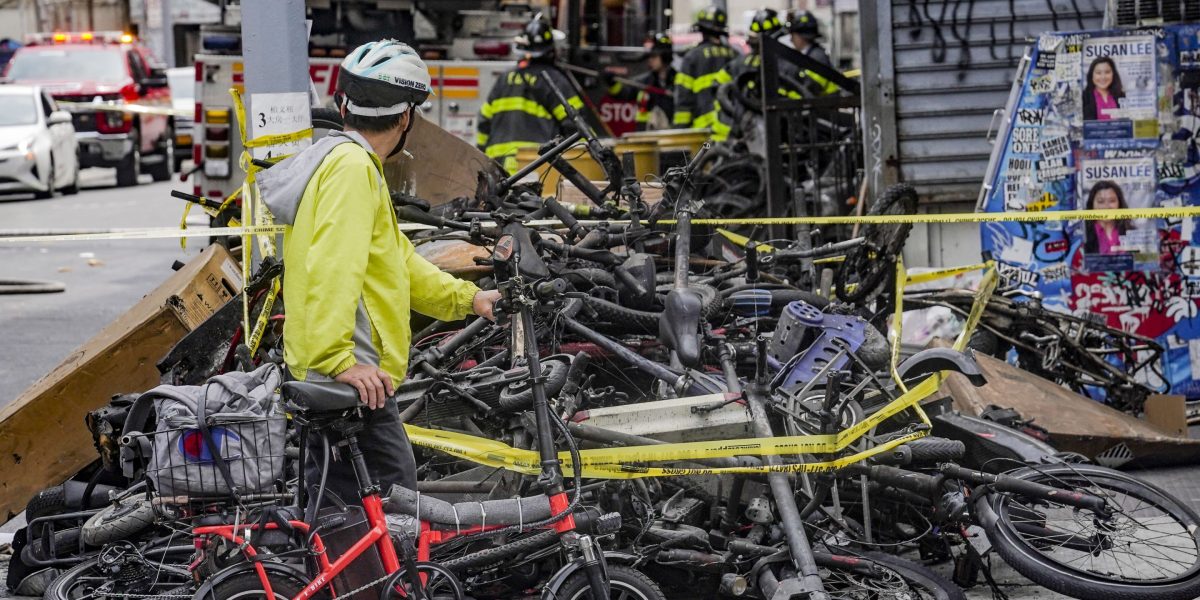New York City wants lithium-ion e-bike batteries to be stopped at the border when they don’t meet national safety standards after rash of deadly fires::After a series of deadly fires.
There is a design for an electric bicycle kit that uses Makita’s 18V battery. The battery is placed under the saddle and attached to a battery holder. A motor built into the front wheel assists during riding. This kind of design takes advantage of existing battery technology to provide efficient assistance. A major advantage of this electric bicycle kit model is the compatibility and portability of the battery. Makita batteries and chargers, which can be easily purchased anywhere in the world, make it highly convenient. https://e-rim.com/ekitsen
We really need a better battery technology, one that doesn’t trivially become an incendiary device.
There has actually been a ton of progress with this over the last decade.
However, everything we have discovered so far either can’t hold as much energy, has really limited charge cycles, or is far too expensive to use at scale.
Ton of progress?
I would refer to that as “research ongoing but no progress yet”.
Current 18650/21700 Li-ion cells are a lot safer than they were 10+ years ago, less chance of thermal runaway and fires now.
As someone who designs global battery powered products in the USA and is well versed in the regulatory hurdles, enforcing these rules is long overdue. The fact that people willingly buy and bring these illegitimate products into their home and wear them on their body is mind blowing to me. You can design a safe lithium products but doing it requires full knowledge of the chemistry, electrical design, safety certification process and some wisdom. Chinese vendors on Amazon have very little of this.
I do this on the side, buy bulk low cycle lithium ion cells, spot weld them together into banks, and make larger packs.
What is the biggest safety problem seen with these?
My packs are 64P, right now 4s but hopefully 7s soon.
My main safety features are per-cell 5A fuses, 100A fuse on each bank under the battery wrap (not removable without cutting the wrap), and keeping the cells and nickel strips under a layer of kapton tape, followed by an ABS plate I designed and printed, then all the wiring, taped to the ABS with kapton tape. Which is then inside of the battery wrap. I use a lower current circuit breaker on the whole circuit.
My layman research suggests that loose wires are the main reason for fires, so all wires are taped down, and the nickel strips are protected from stress. A cell shorting out should blow the 5A fuse. And if I’m careless and bump the two terminals to a conductor while moving it, there’s always a 100A limit. I also only use low-cycled matched cells and currently am charging to 4V and discharging to 3V.
Any other things I can do to make it safer?
Cell quality is important. You want to be using known good quality cells like those from Panasonic, Samsung, LG, etc…
How you manage temperature, charge and discharge is also really important, dendrite growth can cause cell failure in time. Charge temperature is extremely important. So you want to make sure you’re using a smart programmable BMS where you can set up all the protections properly. Ideally one with as many temperature probes as you can find, 4 is good, 8 is better and some will have that many.
Otherwise making sure nothing can short out internally is important too, but it sounds like you’re putting some thought into that. Most critical IMO from what I’ve seen on pre-made battery packs is making sure your series banks are well insulated from each other and have no chance of vibration causing the cells to wear through their heatshrink and touch each other.






